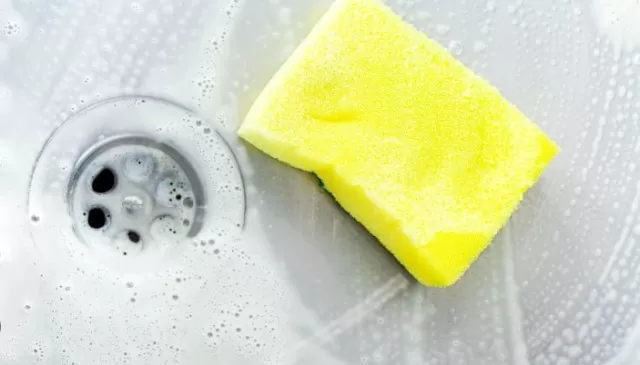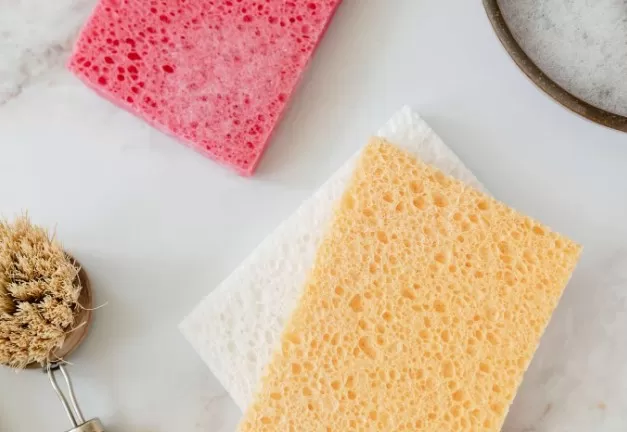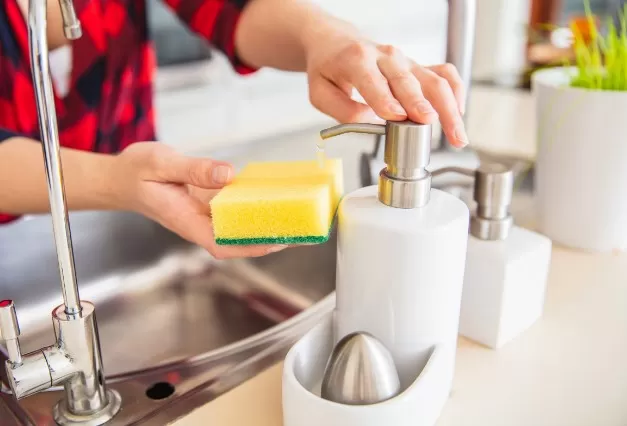How to Know When to Replace Your Kitchen Sponge
As a general rule, sponges should be replaced every 2 to 4 weeks.
However, this can vary depending on how frequently you use them and how well you maintain them. If you notice an unpleasant odor or if the sponge begins to disintegrate before the two-week mark, it’s probably time for a new one.
If you’re unsure whether Your Sponge needs to be replaced, it’s best to err on the side of caution and replace it anyway. Sponges are affordable and easy to find, and it’s always better to prioritize cleanliness.
Jeri Fritz, a professional cleaner from Highland Park Housekeeping, suggests several signs that indicate when to replace sponges.
4 Indications that It’s Time to Discard Your Sponge

Signs It’s Time to Replace Your Sponge and How to Clean Your Cleaning Supplies.
Old sponges are a breeding ground for germs, so it’s important to know when to get rid of them.
Here are four signs it’s time to replace your sponge:.
The sponge is visibly discolored or stained.
“Stains that come from washing dishes or cleaning up messes should wash out relatively easily. If a sponge is keeping stains even after being thoroughly rinsed, it’s ready to be changed out with a fresh one,” says cleaning expert Jeri Fritz.
The sponge has developed a sour smell.
If you smell a seriously sour odor from your sponge, it’s time to throw it away and replace it.
The sponge is falling apart or disintegrating.
If your sponge is falling apart, it’s time to replace it. Wear and tear on a sponge just makes it less effective.
You can’t remember the last time you replaced your sponge.
If it’s been more than two to four weeks, it’s probably time to do so.
To keep your sponges clean and effective, rinse them out thoroughly after each use and allow them to air dry.
Don’t leave them sitting in water or in a damp place. If your sponge starts to smell or looks dirty, clean it by microwaving it on high for one minute, running it through the dishwasher, or soaking it in a mixture of hot water and vinegar.
Remember, it’s also important to regularly clean your other cleaning supplies, such as your vacuum and mop.
Clean your vacuum’s filter and brush roll, and wash your mop heads after each use. By keeping your cleaning supplies clean, you’ll be able to maintain a clean and healthy home.
How to Extend the Life of Your Sponge

Also, make sure to rinse your sponge thoroughly after each use.
Use hot water and soap to clean it properly. This will help to remove any remaining food particles, bacteria, or soap residue from the sponge.
Then, wring out the excess water and hang the sponge to dry.

Another tip is to sanitize your sponge regularly.
You can do this by microwaving a wet sponge for one minute or placing it in the dishwasher with a drying cycle. This will kill any bacteria and extend the life of your sponge.
Finally, avoid using your sponge to clean up spills or messes on the floor or countertop.
This can introduce dirt and other contaminants to the sponge, which can cause it to deteriorate quickly. Use a paper towel or a designated cleaning cloth for these tasks instead.
*The information is for reference only.